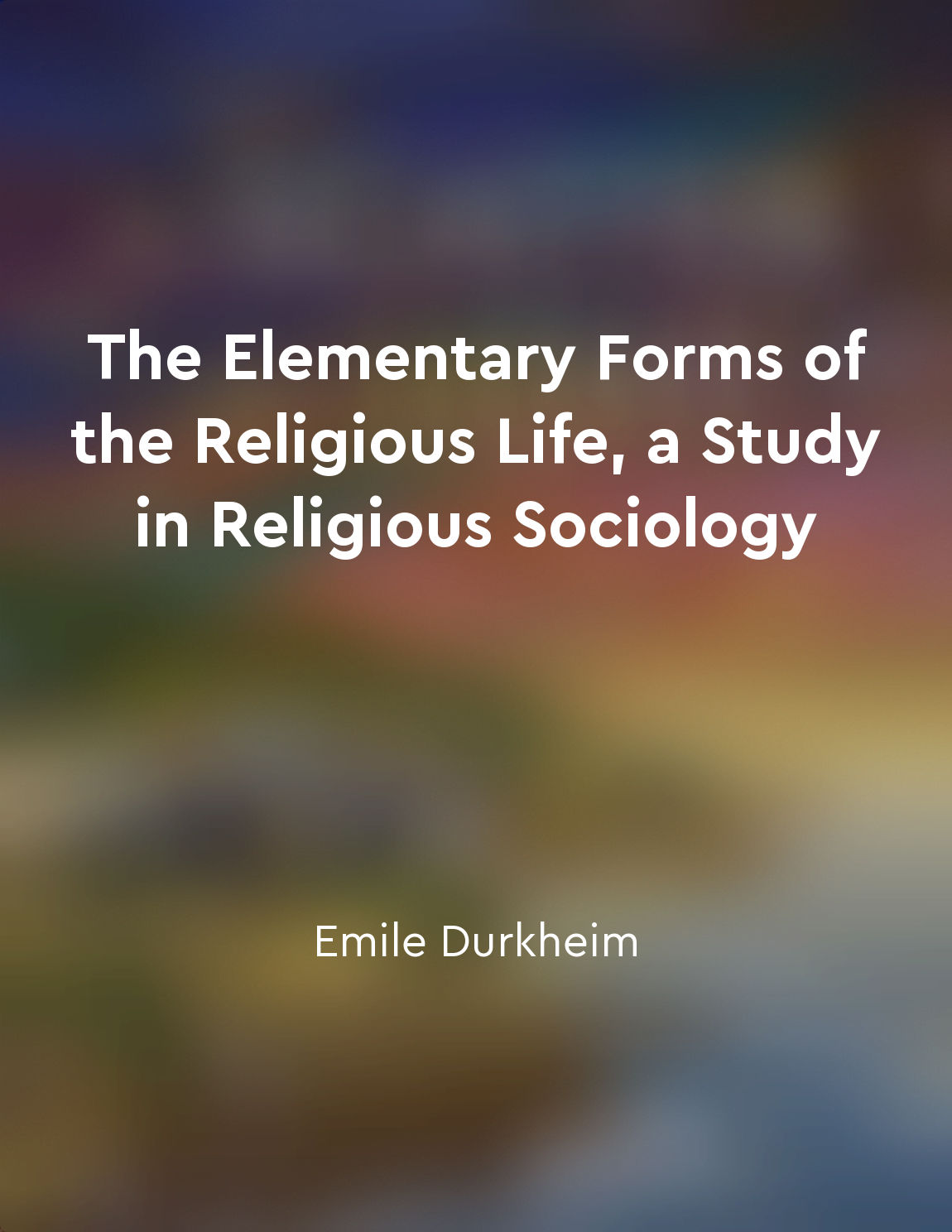Religious representations are sacred and set apart from the profane from "summary" of The Elementary Forms of the Religious Life, a Study in Religious Sociology by Emile Durkheim
The distinction between the sacred and the profane is a fundamental concept in religious sociology. According to Durkheim, religious representations are considered sacred because they are set apart from the ordinary, mundane world of everyday life. The sacred represents a realm of ultimate significance and power, separate from the profane world of ordinary activities and concerns. This separation serves to elevate religious representations above the profane, endowing them with a sense of awe and reverence. The sacred is imbued with a sense of mystery and transcendence, inspiring feelings of reverence and devotion in believers. In contrast, the profane is associated with the mundane, the everyday, and the ordinary. Durkheim argues that the sacred is not simply a reflection of human desires or projections, but rather a real, objective force that exerts a powerful influence over individuals and societies. By setting religious representations apart from the profane, believers are able to access the transcendent power of the sacred and experience a sense of connection to something greater than themselves. The sacred and the profane are not fixed categories, but rather fluid and dynamic concepts that are constantly being negotiated and redefined within religious communities. While the sacred is generally associated with religious symbols, rituals, and beliefs, the profane can also be transformed into something sacred through acts of ritual or devotion.- The concept of religious representations being sacred and set apart from the profane highlights the profound significance and power that religion holds in human societies. By creating a distinction between the sacred and the profane, religious communities are able to create a sense of collective identity, meaning, and purpose that transcends the limitations of the material world.
Similar Posts
Detachment from material possessions can lead to greater spiritual freedom
Detachment from material possessions can lead to greater spiritual freedom. This may seem counterintuitive in a culture that of...
Embrace change as an opportunity for growth
Change is an inevitable part of life, a constant force that shapes our journey in unexpected ways. It can be unsettling and int...
Religious beliefs are arbitrary and subjective
Religious beliefs are arbitrary and subjective. This means that they are based on personal whims or preferences rather than obj...
Atheism is a rational response to religious claims
The concept that atheism is a rational response to religious claims is based on the idea that belief in a higher power lacks em...


